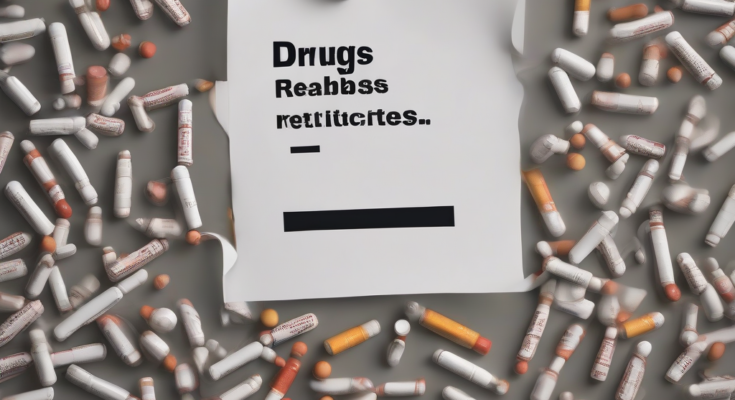Navigating the Path to Recovery: A Comprehensive Guide to Drug Addiction Rehab
Drug addiction is a complex and devastating disease affecting millions worldwide. It’s a chronic relapsing brain disorder characterized by compulsive drug seeking and use, despite harmful consequences. Recovery is possible, and a crucial step in that process is seeking professional help through drug addiction rehabilitation.
Understanding the Stages of Drug Addiction Rehab
Rehabilitation programs typically follow a structured approach, often involving several distinct phases:
- Detoxification (Detox): This initial stage focuses on medically managing withdrawal symptoms. It’s crucial to undergo detox under professional supervision, as withdrawal can be dangerous and even life-threatening, depending on the substance.
- Residential Treatment: This involves living at a rehabilitation facility for an extended period (weeks or months). It provides a structured environment, removing the individual from triggers and enabling intense therapy and support.
- Partial Hospitalization Programs (PHP): These programs offer a less intensive level of care than residential treatment. Individuals attend the facility for a few hours each day for therapy and support, but live at home.
- Intensive Outpatient Programs (IOP): IOPs provide a less structured environment than PHP, with individuals attending therapy sessions several times a week while living independently.
- Outpatient Treatment: This involves attending therapy sessions on a less frequent basis, with individuals managing their recovery while living independently. It’s typically the final stage before transitioning to ongoing aftercare.
- Aftercare: This crucial phase involves ongoing support and monitoring after completing formal rehabilitation. It may include support groups, therapy sessions, and regular check-ins with healthcare professionals.
Types of Rehab Programs
Various rehabilitation programs cater to different needs and preferences:
- 12-Step Programs: These programs, like Alcoholics Anonymous (AA) and Narcotics Anonymous (NA), emphasize spiritual principles and peer support.
- Cognitive Behavioral Therapy (CBT): CBT helps individuals identify and change negative thought patterns and behaviors contributing to addiction.
- Medication-Assisted Treatment (MAT): MAT combines medications with therapy to manage withdrawal symptoms and cravings.
- Holistic Treatment: This approach integrates various therapies, including physical exercise, nutrition, and mindfulness practices, to address the whole person.
- Family Therapy: Family therapy involves family members in the treatment process to improve communication and support the individual’s recovery.
Choosing the Right Rehab Program
Selecting the appropriate rehabilitation program is a critical decision. Factors to consider include:
- Type of Addiction: The program should be tailored to the specific substance(s) being abused.
- Severity of Addiction: Individuals with severe addiction may require more intensive treatment, such as residential rehab.
- Individual Needs: Consider personal preferences, such as the level of structure desired and the type of therapy preferred.
- Insurance Coverage: Check with your insurance provider to understand coverage for rehabilitation services.
- Accreditation and Reputation: Choose a program accredited by a reputable organization and with a positive track record.
- Location and Amenities: Consider the program’s location and whether the amenities offered align with personal needs and preferences.
The Role of Therapy in Rehab
Therapy plays a vital role in successful rehabilitation. Different therapeutic approaches address various aspects of addiction:
- Individual Therapy: Provides one-on-one support to address underlying issues contributing to addiction.
- Group Therapy: Offers a supportive environment where individuals can share experiences and learn from others.
- Family Therapy: Helps repair damaged relationships and improve communication within the family system.
- Trauma-Informed Therapy: Addresses the impact of trauma on addiction and helps individuals process past experiences.
Coping with Relapse
Relapse is a common occurrence in addiction recovery. It’s crucial to view relapse as a setback rather than a failure. Strategies for preventing relapse include:
- Develop a strong support system: Connect with supportive friends, family, and recovery groups.
- Identify and avoid triggers: Recognize situations, people, or places that increase cravings and develop strategies to avoid them.
- Seek professional help immediately: Don’t hesitate to contact your therapist or support group if you experience cravings or are struggling.
The Importance of Aftercare
Aftercare is a critical component of long-term recovery. It provides ongoing support and resources to help individuals maintain sobriety. Aftercare may include:
- Support Groups: Regular attendance at support groups like AA or NA provides a sense of community and accountability.
- Therapy Sessions: Ongoing therapy helps address underlying issues and prevent relapse.
- Regular Check-ins with Healthcare Professionals: Regular monitoring helps to track progress and address any challenges.
Finding Help
If you or someone you know is struggling with drug addiction, help is available. Resources include:
- Substance Abuse and Mental Health Services Administration (SAMHSA): Provides a national helpline and referral services.
- National Institute on Drug Abuse (NIDA): Offers information and resources on drug addiction.
- Local Treatment Centers: Many local hospitals and clinics offer drug addiction treatment services.
- Support Groups: AA, NA, and other support groups provide peer support and encouragement.
Recovery from drug addiction is a journey, not a destination. It requires commitment, perseverance, and a strong support system. With the right help and resources, recovery is possible.
